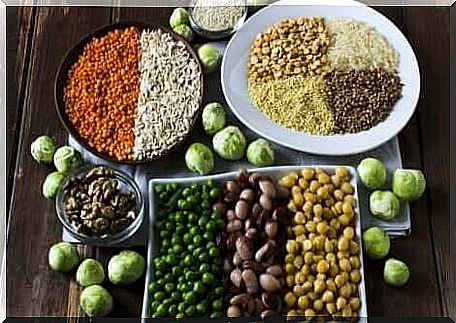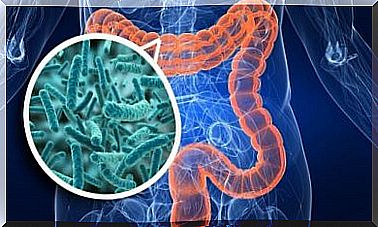Why Is Protein Intake So Important?
The daily consumption of proteins is important. In the following, we will therefore go into more detail about this essential macronutrient and its functions.

In order to guarantee an adequate protein intake, it is first important to know what proteins are and what their functions are. Once you know about this, you will be particularly careful to meet your protein needs. Read on to find out more about this topic.
Macronutrients
There are 3 types of macronutrients: proteins, fats and carbohydrates. They are found in large quantities in various foods and make it possible for us to meet the energy needs of our body.
The specific functions of proteins are diverse. We find them in both animal and plant foods and they are part of cellular structures and tissues. So by ensuring adequate protein intake , this helps prevent muscle mass loss.
The current scientific literature states that a lack of protein is one of the risk factors that can cause sarcopenia. This disease leads to a progressive destruction of muscles and a loss of strength throughout the body.
In addition, proteins also have many other physiological and anatomical effects. They can act as enzymes and catalyze internal reactions in the cells and the internal environment. This would mean an acceleration of processes that normally run slowly. It is even possible to convert them to glucose at the hepatic level to produce energy.

The right protein intake for the right body composition
A lack of protein can lead to illness. Until recently, experts even believed that excess protein was also harmful. Nowadays, however, it is more worrying when the protein intake is too low.
Despite the fact that proteins can perform extremely different tasks in the body, their most important function is structural. For athletes, ensuring proper protein intake is essential for muscle growth.
Individuals who lead a sedentary lifestyle should consume 0.8 grams of this nutrient per kilogram of body weight per day. In comparison, the requirement of athletes is almost 1.5 grams.
A study review recently published in the Journal of the International Society of Sports Nutrition even recommends increasing protein intake to 1.3 grams per kilogram of body weight per day in people who suffer from increased muscle wasting.
Monitoring protein intake is not only important in connection with exercise. According to experts , proteins help prevent and reduce the cachexia processes associated with cancer. This condition consists of progressive weight and muscle loss, which increases the risk of death in cancer patients.
Does protein intake affect kidney function?
As mentioned earlier, the experts advocated limiting protein intake. They justified this with the fact that excessive consumption could lead to damage to the liver and kidneys in the medium term. For this reason, experts recommended no more than 0.37 grams of this nutrient per kilogram of weight for people with a high degree of sedentariness.
However, a report published in 2017 analyzed the results of several studies in which high doses of dietary protein were administered over a long period of time. The results of most of these studies showed no damage to the kidneys. For this reason, experts nowadays consider a high-protein diet to be safe.
Not all proteins are created equal
As you can see, it is extremely important to consume protein. However, not all dietary proteins are of the same quality. There are two basic classes: Proteins can be either animal or vegetable.
Animal proteins have a higher biological value. This means that they all contain amino acids essential for the human body (those that the body cannot make) and also have acceptable digestibility.
In contrast, vegetable proteins are usually deficient in some essential amino acids. In addition, their digestibility is also lower, which affects their absorption. But they are still necessary to guarantee a varied diet. However, experts advise making sure that at least 50% of the proteins in the diet are of animal origin.
To better understand the importance of essential amino acids, we would like to point out that some of them are involved in maintaining muscle mass. This is the case with leucine, for example. This amino acid is able to stimulate the body’s anabolic pathways and promote the formation of lean tissue.
Recent research, published in The Journal of Nutrition, confirms that supplementing this amino acid in isolation can prevent muscle loss in the elderly. However, diet is and will remain the best way to consume protein.

Make sure you are consuming adequate amounts of protein
Today we took a closer look at the importance of proteins in nutrition. Insufficient intake of this nutrient affects muscle health and other physiological responses. These include, for example, the production of certain hormones.
To make sure you are getting the amount of protein you need, it is important to analyze your diet. If each of your main meals contains an animal product, it is unlikely that you will suffer from a deficiency. In any case, try to make sure that your snacks also contain plant-based proteins.
Until a few years ago, experts believed that it was correct to consume 0.37 grams of protein per kilogram of body weight per day. Nowadays, however, the recommended protein intake is higher. So watch your protein consumption and your health will benefit from it in the long run.









